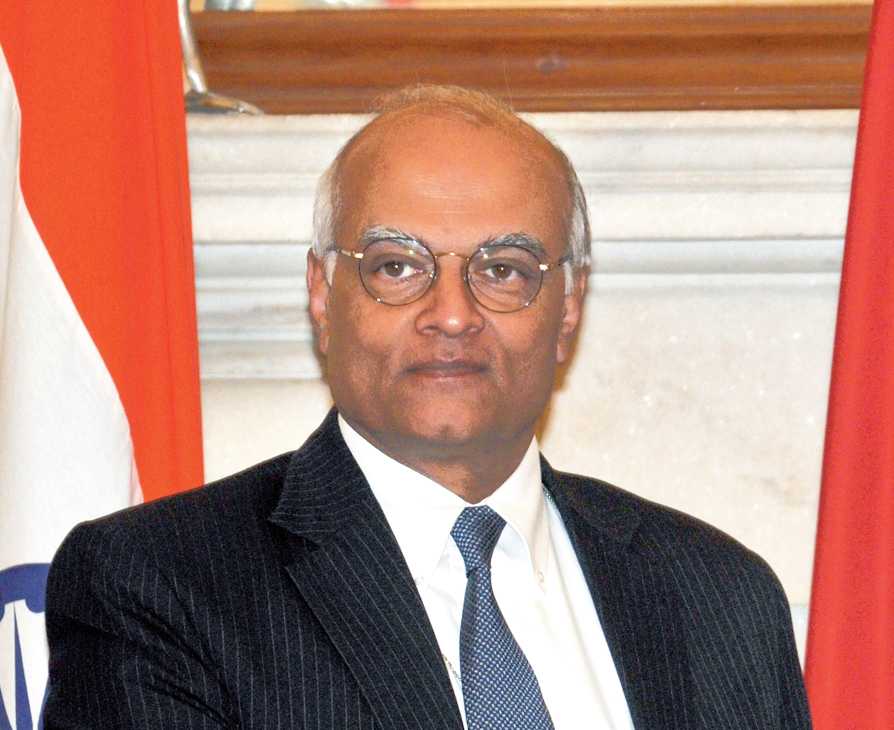India’s recent domestic policies have isolated it globally and resulted in hyphenation with Pakistan as a “religiously driven and intolerant state”, former national security adviser Shivshankar Menon said on Friday.
Menon was speaking at a public hearing organised by Constitutional Conduct, a collective of retired senior civil servants, and Karwan-e-Mohabbat, an organisation started by activist Harsh Mander against hate, to explain different aspects of the Citizenship (Amendment) Act (CAA), National Register of Citizens (NRC) and the National Population Register (NPR).
The former IFS officer spoke on the cumulative effect that the government’s measures on Kashmir and the religion-specific citizenship law had had on foreign affairs.
Suggesting India may have violated its international commitments with the CAA, Menon said: “Those who think the law is an ass, that in any case international law cannot be enforced, you must consider the political and other consequences of being perceived as violators of international law and of not keeping our word.”
He said that global public opinion about India had shifted in the past few months — ranging from the right-of-centre Wall Street Journal to the left-of-centre The Guardian and “almost everybody in between, The New York Times and The Washington Post” — and that even friendly countries were taken aback.
New Delhi, through its recent decisions in “the pursuit of sectarian, divisive party political goals”, has “gifted’’ adversaries with a platform from which to attack India, he said.
Explaining the significance of global opinion in diplomacy, the former national security adviser said it could act as a useful lever for countries to pressure India to get what they want.
Niraja Gopal Jayal, political scientist and an expert on citizenship, described the CAA-NRC-NPR as an “unholy trinity”. The CAA is the path to citizenship for those who are favoured while the NRC is the road to statelessness for those not favoured, she said.
If the judiciary does not step in to stop this, India would move towards an ethno-national basis for citizenship, Jayal said. She fears that the poor, minorities, Dalits and Adivasis, who have been deprived of substantive citizenship because of their socio-economic disadvantages, will now legally and formally become second-class citizens because of their inability to furnish documents and the history of prejudice they face.
Responding to the government’s criticism that those opposing the CAA are against the inclusion of the persecuted minorities, lawyer Gautam Bhatia countered: “What we are asking for is more inclusion that is not discriminatory.”
Political scientist Zoya Hasan questioned the rationale behind leaving out Sri Lanka and Myanmar, which have a known record of religious persecution, from the ambit of the CAA and said the basic intent of the new law was to single out one community and identify it as the perpetrator.
Commenting on the decision by several states not to implement the CAA, she said it was a reflection of the discomfort among people about the BJP’s ideological project to redefine India.
While the government is now telling people that the NPR has nothing to do with the NRC, the vice-chancellor of the NALSAR University of Law, Faizan Mustafa, said: “Once the current NPR is made, getting the NRC will just be a click away.”
This is in consonance with what the government itself has told Parliament several times in the past, that the NPR is the mother database for the NRC.
The former high commissioner to Bangladesh, Deb Mukharji, said the CAA could further jeopardise the condition of minorities in the three targeted countries, flagging statements of Bangladeshi Hindus.
The purpose of the CAA, he said, is to create a law that can be used like the sword of Damocles on Muslims. The country should use the Assam experience to evaluate the human and economic cost of the NRC, Mukharji added.










